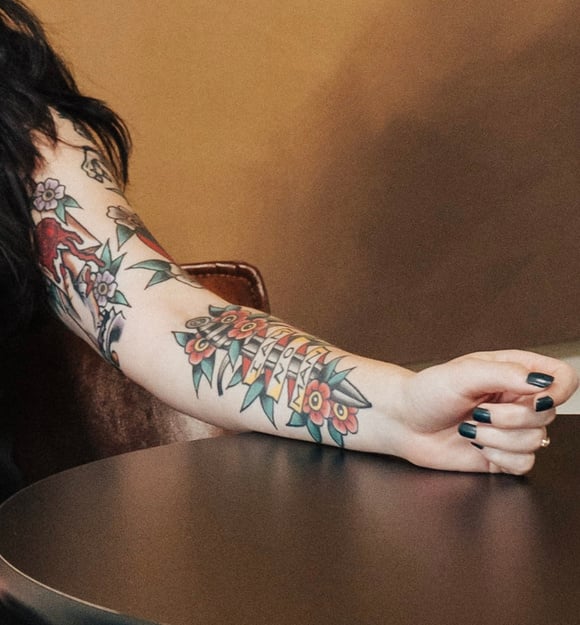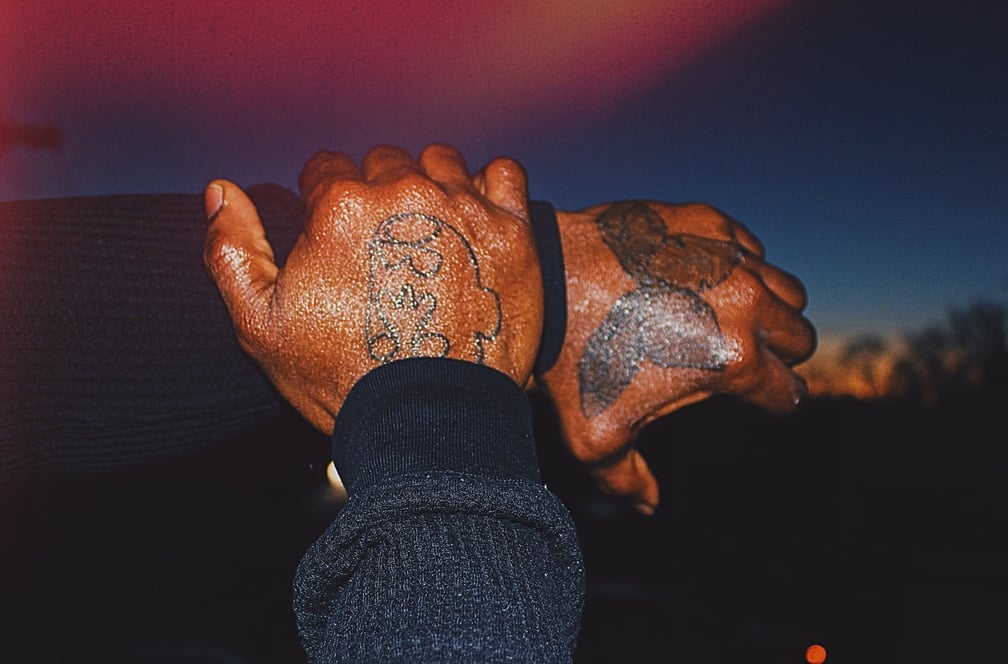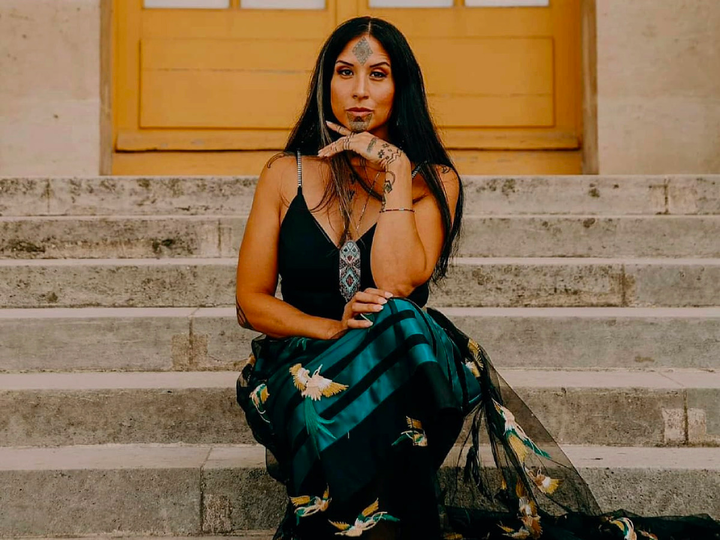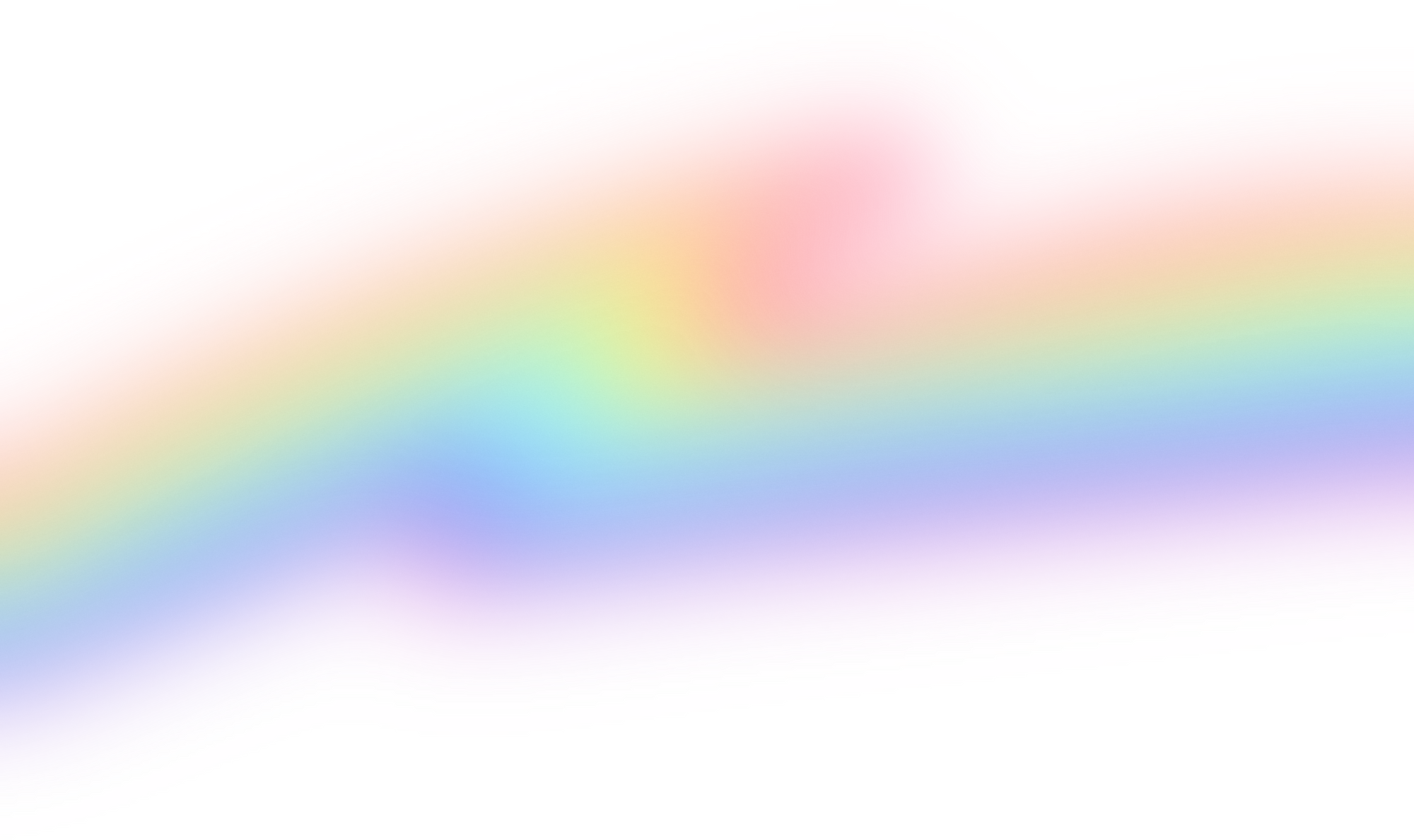




PURPOSE: Eval + Ink aims to unveil the identities and elevate the voices of program evaluators by exploring the narratives behind their tattoos. The project seeks to create a dynamic space that challenges the traditional expectations of neutrality within the field, allowing evaluators to authentically express their multifaceted humanity.
Project Goals

Amplify Voices: Provide a platform for program evaluators, especially those from marginalized groups, to share their unique stories and experiences through the lens of their tattoos.

Cultural Inclusivity: Celebrate and highlight the cultural diversity within the evaluator community, fostering an inclusive space that respects and embraces different identities.

Professional Reflection: Encourage evaluators to reflect on the emotional aspects of being tattooed professionals, navigating the balance between personal expression and the expectations of objectivity.

Community Impact: Showcase how evaluators' tattoos reflect their engagement with diverse communities and work settings, emphasizing the human connections within the field.

Challenge Norms: Challenge traditional perceptions of neutrality and objectivity, sparking a dialogue about the role of personal expression in the professional lives of evaluators.

Create Dialogue: Facilitate a dialogue within the evaluation community that explores the parallels between the collaboration with tattoo artists and the evaluator's role in understanding and reflecting the needs of clients or communities.

Promote Equity: Contribute to a more equitable understanding of program evaluation by acknowledging and celebrating the intersectionality of identities within the profession.
Cultural Relevance
The Eval + Ink project holds profound cultural relevance within the field of program evaluation by actively embracing the rich diversity of identities among evaluators. In recognizing the tapestry of cultural backgrounds, including those from marginalized communities, Eval + Ink transcends the traditional boundaries of neutrality. Tattoos, as cultural artifacts, become powerful vehicles for self-expression, encapsulating the nuanced stories and histories of individuals. By amplifying the voices of evaluators, particularly from underrepresented backgrounds, Eval + Ink contributes to a more inclusive and equitable understanding of the multifaceted human experiences within the evaluation community. This initiative not only acknowledges cultural diversity but celebrates it as a source of strength, resilience, and creativity. Eval + Ink invites a reevaluation of cultural norms within the professional sphere, encouraging a dialogue that enriches the broader narrative of program evaluation with authenticity, empathy, and respect for diverse perspectives.
What if I don’t have a deeply, culturally relevant tattoo. Can I still contribute?
Yes! We understand that culture is socially constructed and ever evolving. It can mean different things to different people. So we welcome tattoos from traditional Maori culture to Rick and Morty.
I am not a program evaluator but have dabbled in evaluation. Is this for me?
Of course! We recognize folx that may be evaluation-adjacent.
Meet the Curators
David
Sitting in the lobby of AEA 2023 hotel in Indianapolis to get some respite from the hustle and bustle of sessions and chatter, I could not help but notice the art adorning the arms, hands, legs and throats of fellow attendees. By ‘art’, I am referring to the tattoos that people chose to decorate their bodies. I myself have several tattoos—all of which I am proud of each to their own degrees. I have tattoos that represent my Trinidadian culture, rugby, crossfit and now pickleball obsessions, Geography education, pro-Blackiness/Afrofuturism, and my marriage. At present count, I have 13 individual tattoos. None however represent my current work in communities or my role as an equitable evaluator. This I am hoping to change.
Going back to that moment in Indianapolis, and given the theme of AEA 2024, I wanted to know each tattoo and their owner’s story: What is your tattoo(s) story? Additionally, as an evaluation professional, how is your chosen art amplifying your voice of expression? How does it shape your identity as an evaluator? Have any of your tattoos been inspired by your work in communities?
Armed with these curiosities, I approached Christine, a colleague who I met on the Eastern Evaluation Research Society Board on collaborating on what this has now become: an exploration of program evaluators and their tattoos. Christine and I were both newbies and what I noticed and eventually asked her about was her own tattoo story.
Social Impact Consultant
(he/him)
Christine

Evaluation Consultant
(she/her)
I always knew I wanted to have tattoos, but I experienced a sense of discomfort when considering it. Not because of the pain, but because of the lack of representation of the practice in education and academia. As a K12 educator, I was discouraged from having visible tattoos. There was a moral stigma of what a professional educator was and presented as; that was prolific in my training and early career. It took years of self-acceptance and the unlearning of the notion of what a “true” professional looks like to step out and dive into having art that was visible. But still I wondered, (1) are there others who feel similarly of the sentiment “you are professional looking because you are a professional”? (2) how do tattoos impact one’s identity as an evaluator? As I progressed into evaluation and met others I saw little by little representation of tattooing among evaluators. David was one of the first who shared my deep appreciation for the art form and the value it had in our evaluation process in authenticity and building in reflexivity into evaluation practice.
My tattoos are a homage to the events, literature, people, and places that have shaped me as a person. Not only are they part of my identity but they are the work of an artist that is connected to my community and representative of his experience, perspective, and a shared tradition that has long endured. But that is merely my story, the practice of tattooing for many has significant cultural and regional meaning and is an act of storytelling that goes beyond artistic beauty. Exploring the experience of evaluators and their visual stories in tattoos excites me at the possibilities it could have for community engagement and impact of the evaluator as an instrument in their practice.
story.
SHOW US YOUR INK
We welcome entries from new, emerging and experienced program evaluators and evaluation-adjacent folx to contribute to our project. Our objectives are (1) to curate tattoo pictures and their stories to present at conferences such as EERS, CREA and AEA and (2) to create a digital for ink-minded individuals. No tattoo is too big or small!
Submission Guidelines:
- Please submit your entries using the Google form below. (Form submission should take ~20-30 minutes)
- You must be at least 18 years old.
- We love expression but would like to note that your submissions will be viewed by a broad audience.
- By completing and submitting the linked form, you give the authors permission to use your pictures and stories for conferences session(s), social media and print.
- There is no monetary reward or stipend for your participation. Instead, you will be automatically entered into a random drawing to win a $100 gift card.
Inspirational + Foundational Theory
Program evaluators' identities play a crucial role in shaping the trajectory and outcomes of evaluations, as evidenced by scholarly works such as Blesdoe (2021) and Symonette (2009). In the intricate field of program evaluation, the evaluators themselves are not neutral entities but bring their unique backgrounds, perspectives, and experiences to the evaluation process. Blesdoe's (2021) exploration delves into the impact of evaluator identities, emphasizing the nuanced interplay between personal backgrounds and the evaluation context. This examination sheds light on how evaluators' cultural, social, and professional identities influence the design, implementation, and interpretation of evaluations.
Symonette (2014), in a parallel vein, contributes to the discourse by highlighting the significance of reflexivity in the practice of program evaluation. Evaluators, according to Symonette, should engage in critical self-reflection to recognize and navigate the potential biases embedded in their identities. This self-awareness is paramount in ensuring evaluations are conducted with sensitivity and respect for diverse perspectives.
Drawing from these scholarly insights, it becomes evident that the identities of program evaluators are not mere background details but integral components that shape the very fabric of evaluations. As the field of program evaluation continues to evolve, understanding and acknowledging the impact of evaluator identities becomes imperative for fostering credibility, inclusivity, and effectiveness in the evaluation process.
evalandink@gmail.com
Website designed by kg frey studios


